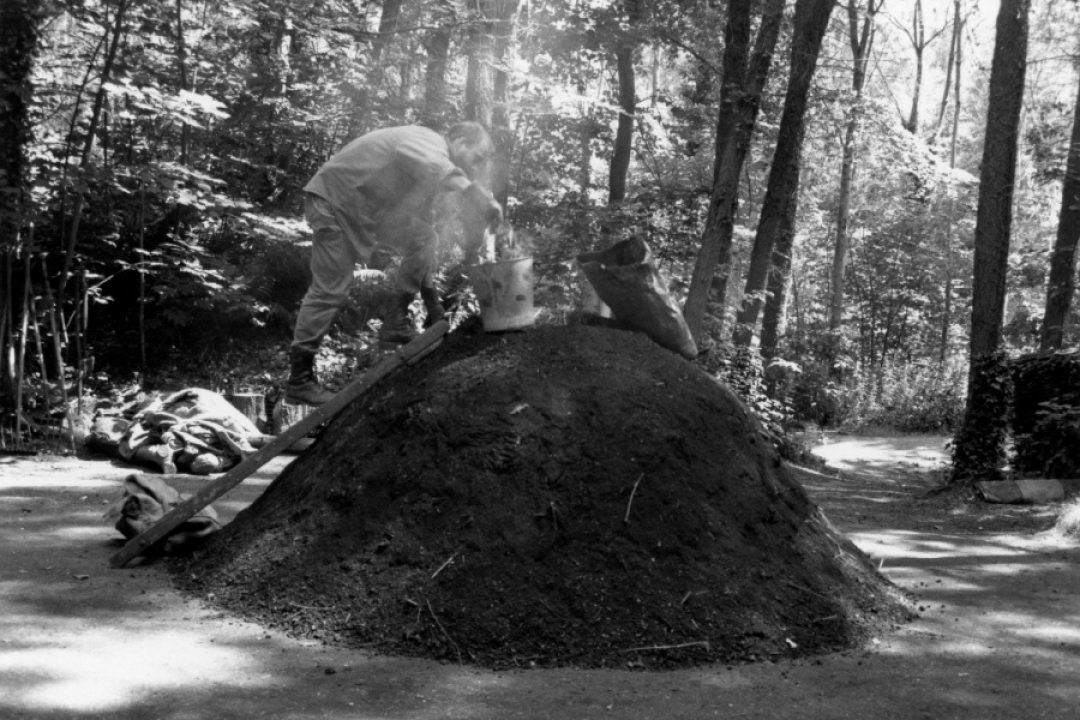The forest kiln in the 1990s
Tomorrow is Charcoal Burning Day at Hestercombe. It means an early start for our Gardens Team who will light the kiln at 5am and stay up at the Charcoal Burner’s Camp in the woods until it gets dark and the charcoal is made. We’re also open a little later than usual tomorrow – you can explore the gardens until 8pm and also enjoy delicious barbecued food by the Mill Pond.
Charcoal making is an ancient process and has taken place at Hestercombe from at least 1731 when John and Margaret Bampfylde lived here. Every country estate like Hestercombe would have employed a charcoal burner, a well-respected but lonely job. In the 1750s, Hestercombe’s charcoal burner was earning one shilling a day, about £10 in today’s money.
Charcoal was made in July, August and September in pits, a cheap but difficult to control method. A hole or trench was dug into which the wood was stacked in tiers and then covered with soil to seal it. Multiple pits were common – up to four were used at Hestercombe at any one time. Their size varied from two to twenty cubic meters.
In 1996, after the restoration of the Landscape Garden had begun, charcoal burning was re-introduced to the estate and an above ground ‘forest kiln’ was used. Since then we have continued the tradition of charcoal making every summer. Today we use a more efficient cylindrical metal kiln – our present one is four years old.
You’ll notice a small teepee-style hut near our kiln. This was the charcoal burner’s shelter and he would have slept there. The current one was originally built in the 1990s. In the past two years, we have done lots of repairs to it including rebuilding the frame and re-thatching the roof using branches of pine.
All the wood that we use for making charcoal comes from the estate as part of our ongoing woodland management. The majority of the wood used is sycamore which is coppiced. Once the wood is cut, it is stacked up for 18 months to season. It is then cut into foot long lengths ready for stacking into the kiln. The wood is around 1-2 inches in diameter - any wood thicker than that is split with an axe.
Our step-by-step guide to making charcoal
1) Wooden supports are placed at the base of the kiln to act as vents to allow some air into the middle of the kiln to help the fire to ignite.
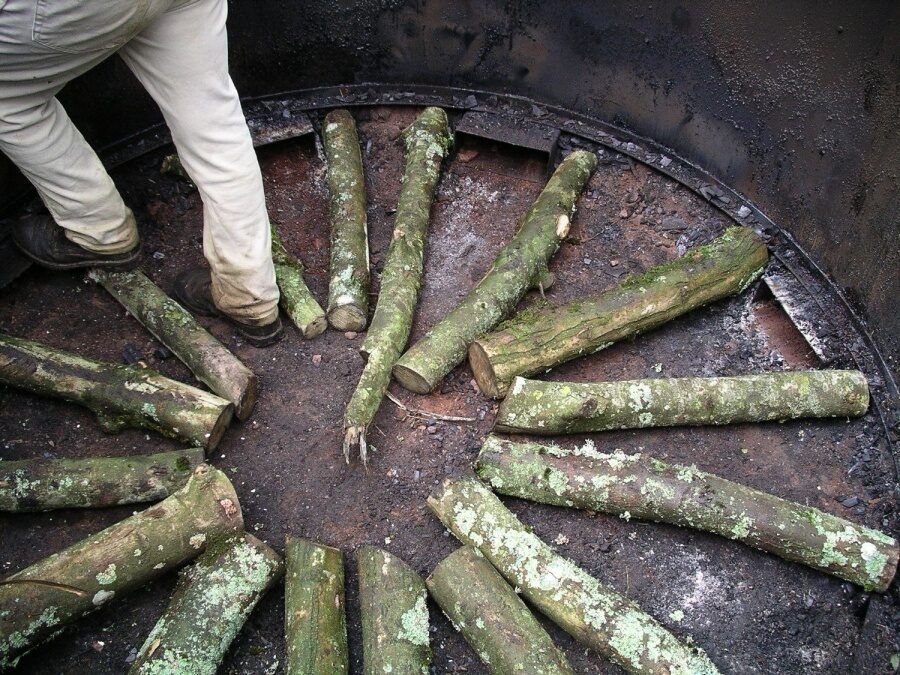
2) Shredded paper is then put in the middle along with some old charcoal. This is where the fire will be lit. The first layer of wood known as ‘bridges’ are placed on top of the supports.
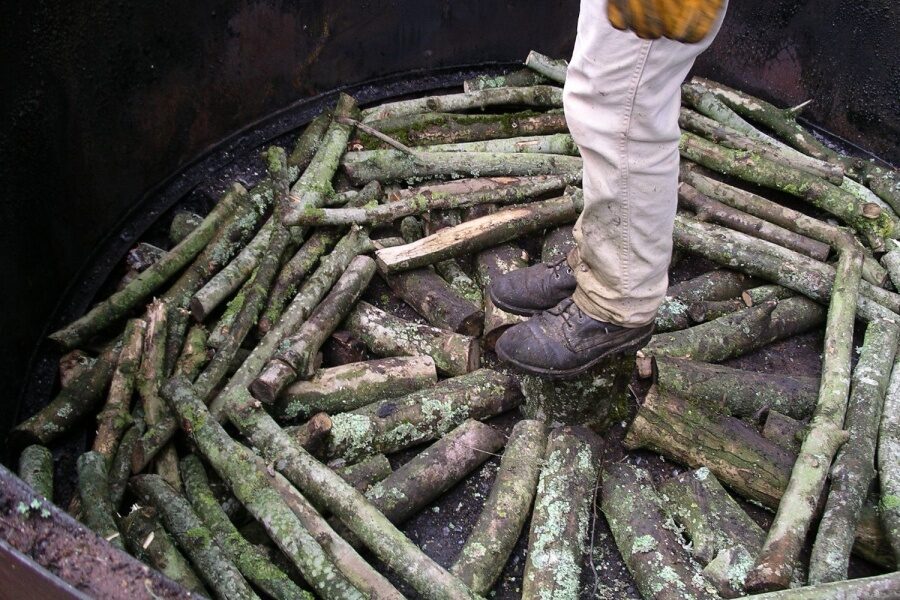
3) Over the top of this we place our sacrifice layer which is very dry brash (the dead lower branches of trees) which helps the fire get going inside the kiln.
4) Wood is then laid horizontally in layers tightly so we can maximise the amount of wood in the kiln and produce the most charcoal.
5) To light the kiln a rag tied to the end of a pole is pushed through the vent to the centre of the kiln. The lid of the kiln is kept ajar by a branch to help air flow and provide enough oxygen to get the fire going.
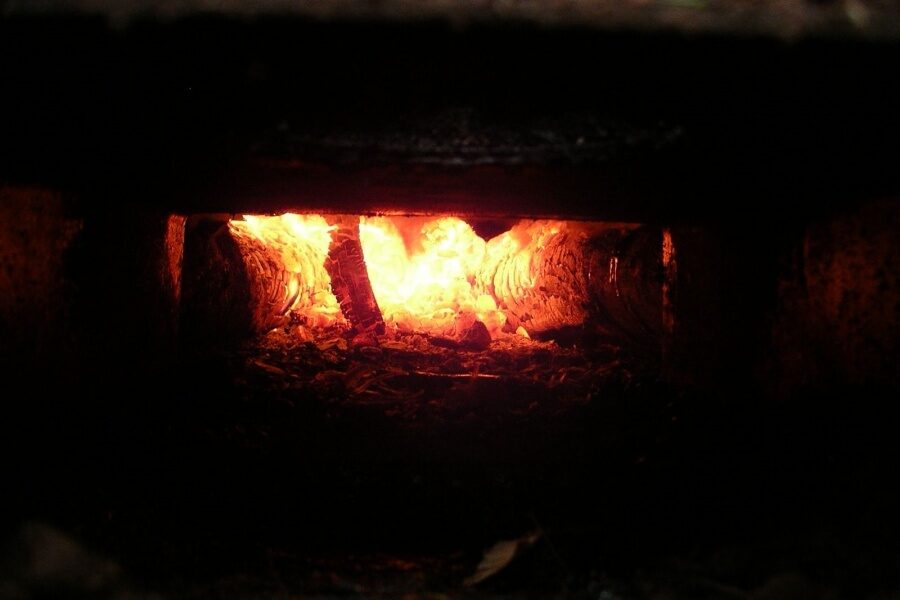
6) Once the fire is burning the lid is dropped down. Sand is used along the edges of the kiln lid to help seal the rim and stop air getting in.
7) Around the outside of the kiln are 8 vents. 4 of these vents have chimneys inserted into them to allow smoke to come out, whilst the base of them is blocked by a brick. The other 4 are left open to allow air in. Halfway through the process the chimneys are swapped around to ensure an even burn.
8) The burn takes around 12-14 hours and needs to be manned throughout. Once the smoke has turned completely clear, the chimneys are removed and all the vents are sealed up with sand.
9) The kiln is then left to cool for a few days before being emptied and the charcoal bagged up ready to be sold in our shop.
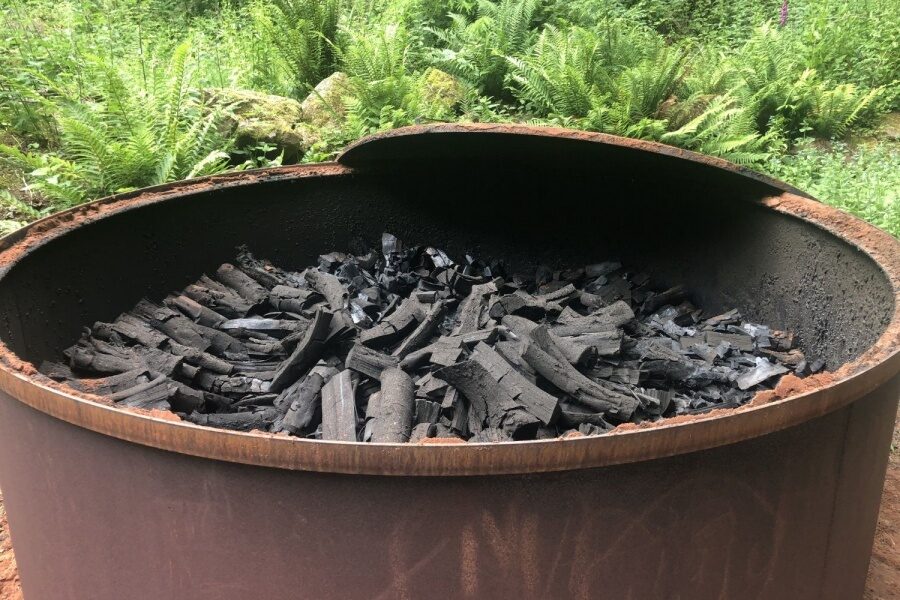
If you're planning a summer barbecue, buy your charcoal from our shop. We have plenty in stock and we can do deals on bulk buys. On your next visit to Hestercombe, don't forget to visit the Charcoal Burner's Camp in the Landscape Garden.
